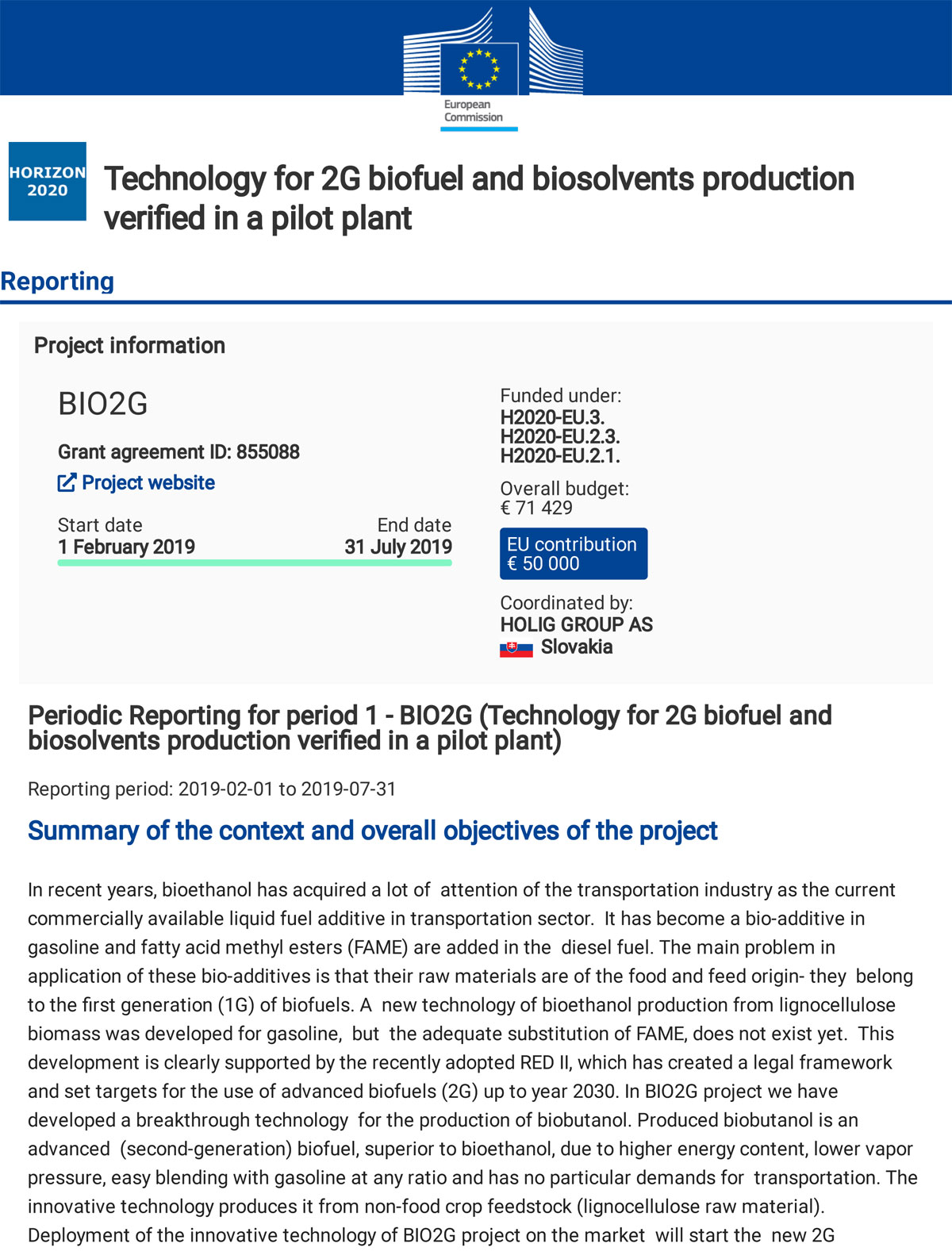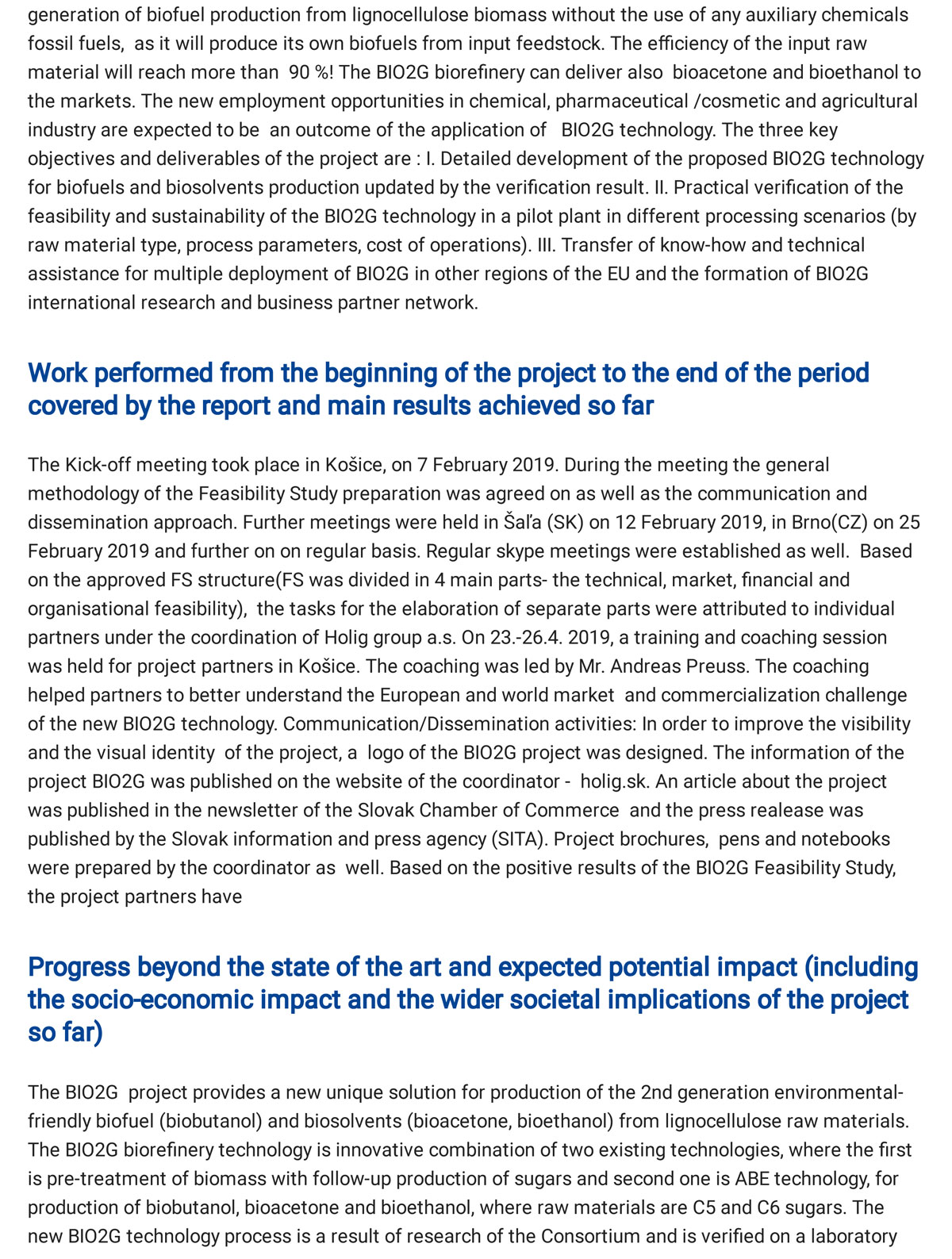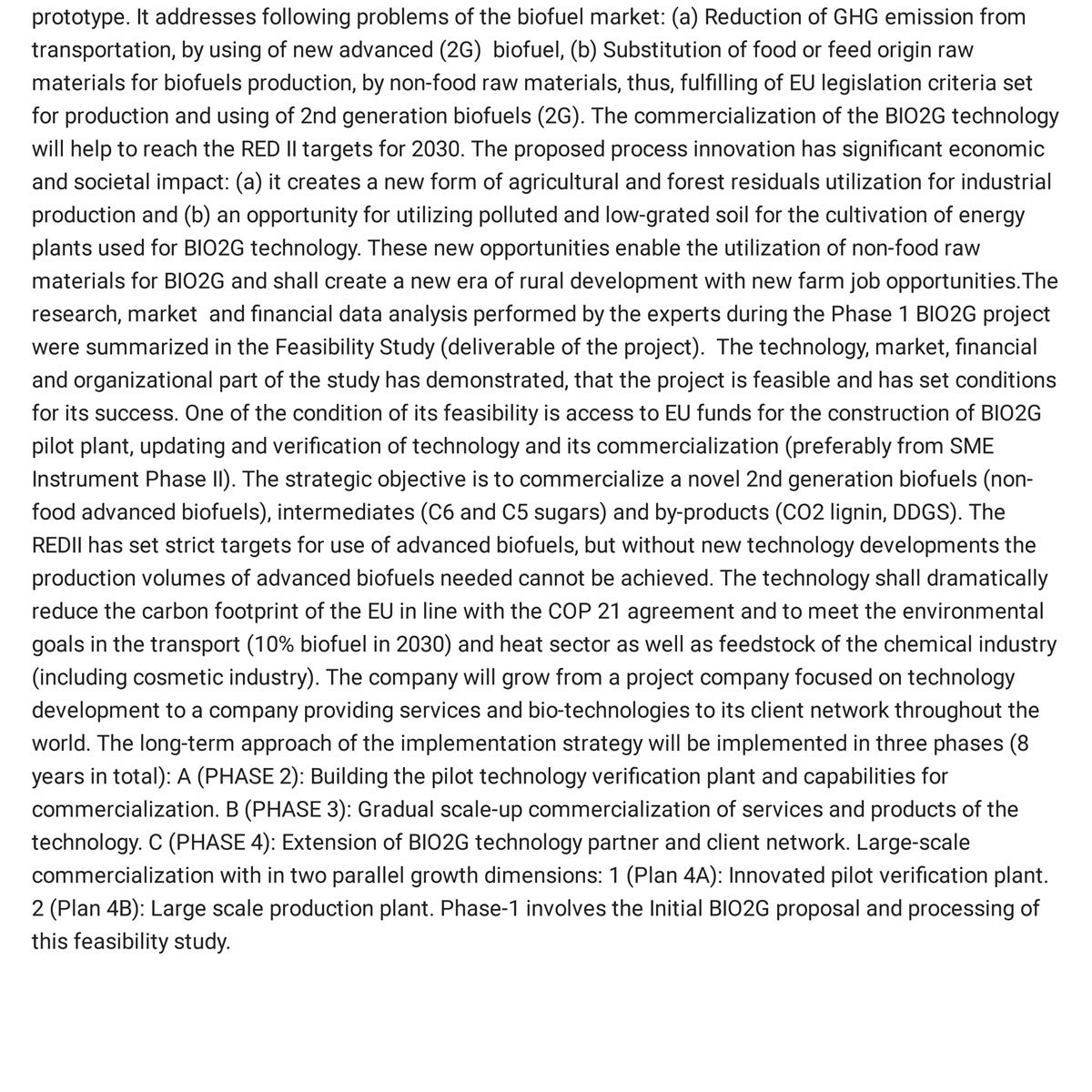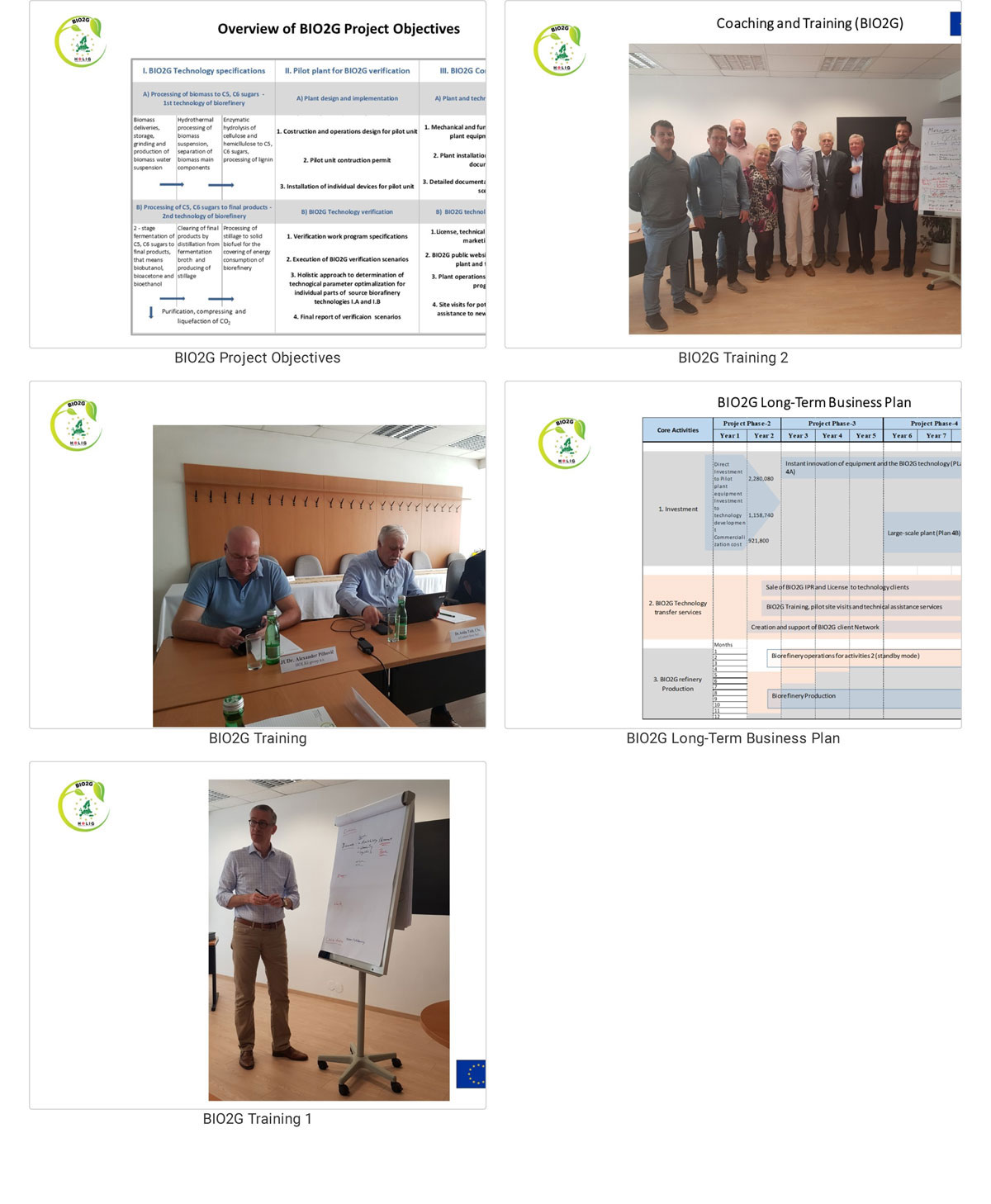



New unique technology for production of second-generation (2G) biofuels
In the EU, transport is responsible for about 21% of all greenhouse gas emissions that contribute to global warming, and the percentage is rising. In order to achieve sustainable development goals, in particular the reduction of greenhouse gas emissions agreed under the Kyoto Protocol and Paris agreement, it is important to find ways of reducing emissions from transport. The EU is supporting biofuels with the aim of reducing greenhouse gas emissions, promotion the decarbonisation of transport fuels, diversifying fuel supply sources, provide new income opportunities in rural areas and developing long-term replacements for fossil oil.

EU Strategy for biofuels has two main aims:
- further promote biofuels in the EU and developing countries to ensure that their production
and use is globally positive for the environment and to taking into account competitiveness
contribute to the Lisbon Strategy; - to prepare for large-scale use of biofuels by improving their cost-competitiveness through
the optimized cultivation of dedicated feedstock, research into biofuels "second generation
(2G)" and support for market penetration through demonstration projects and removing
non-technical barriers;
From these aims, the European Parliament Council approved the Directive 2009/28/EC on the promotion of the use of energy from renewable sources and amending and subsequently repealing Directives 2001/77/EC and 2003/30/EC. In addition, Directive 2009/30/EC of the European Parliament and of the Council of 23 April 2009 amending Directive 98/70/EC as regards the specification of petrol, diesel and gas-oil and introducing a mechanism to monitor and reduce greenhouse gas emissions. The present EU biofuels policy focuses on the development of 2G biofuels, overcoming market barriers, and the improvement of distribution and storage systems. Biofuels should be produced in ways that do not cause significant environmental damage or competition with food production, or compromise bio-diversity. This EU Parliament effort was voted on its first reading of the revised Renewable Energy Directive on 17 January 2018, choosing to limit the use of crop-based biofuels and boost second-generation biofuels. The draft legislation says that crop-based biofuels should not exceed 7% of road and rail fuel, the consumption level as of 2017.



Based on the above conditions, HOLIG group A/S elaborated the bases for the implementation of unique bio-refinery technology for the production of 2G biofuels and biochemicals from lignocellulosic raw material, which is mainly represented by agricultural and forest waste, by-products and residues and targeted energy crops. Implementation of bio-refinery technology consists of two independent technologies, where the first represents the pre-treatment of biomass with the subsequent production of C5, C6 sugars and lignin and the second the treatment of C5, C6 sugars to biobutanol, bioacetone and ioethanol (ABEtechnology). Part of the bio-refinery implementation plan is also the implementation of a power block based on its own solid and gaseous biofuels. Lignin, which at the same time presents not only fuel, but a sales product also, processed stillage on solid biofuels and produced biogas, represent own energy resources that fully cover the energy consumption of bio-refinery without the need of fossil fuels using. The production capacity of bio-refinery is 50 000 t/y of liquid biofuels consisting from 30 000 t/y of bio-butanol, 15 000 t/y of bio-acetone and 5 000 t/y bio-ethanol. This capacity also includes the production of 72 000 t/y of lignin, 48 000 t/y of solid biofuels from stillage and surplus sludge from WWTP, 12,8 million m 3 /y of biogas and 19 800 t/y of liquid CO 2 . This production capacity needs 360 000 t/r of biomass, which requires very well developed logistics and warehouse management.
